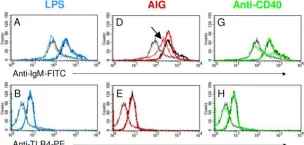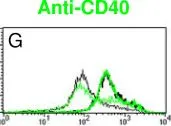Obesity and type 2 diabetes mellitus (T2DM) are associated with an increased risk of severe outcomes from infectious diseases, including coronavirus disease 2019. These conditions are also associated with distinct responses to immunization, including an impaired response to widely used severe acute respiratory syndrome coronavirus 2 (SARS-CoV-2) mRNA vaccines.
We sought to establish a connection between reduced immunization efficacy via modeling the effects of metabolic diseases on vaccine immunogenicity that is essential for the development of more effective vaccines for this distinct vulnerable population.
A murine model of diet-induced obesity and insulin resistance was used to model the effects of comorbid T2DM and obesity on vaccine immunogenicity and protection.
Mice fed a high-fat diet (HFD) developed obesity, hyperinsulinemia, and glucose intolerance. Relative to mice fed a normal diet, HFD mice vaccinated with a SARS-CoV-2 mRNA vaccine exhibited significantly lower anti-spike IgG titers, predominantly in the IgG2c subclass, associated with a lower type 1 response, along with a 3.83-fold decrease in neutralizing titers. Furthermore, enhanced vaccine-induced spike-specific CD8+ T-cell activation and protection from lung infection against SARS-CoV-2 challenge were seen only in mice fed a normal diet but not in HFD mice.
The study demonstrated impaired immunity following SARS-CoV-2 mRNA immunization in a murine model of comorbid T2DM and obesity, supporting the need for further research into the basis for impaired anti-SARS-CoV-2 immunity in T2DM and investigation of novel approaches to enhance vaccine immunogenicity among those with metabolic diseases.
Copyright © 2023 The Authors. Published by Elsevier Inc. All rights reserved.
Product Citations: 67
In The Journal of Allergy and Clinical Immunology on 1 November 2023 by O'Meara, T. R., Nanishi, E., et al.
-
Mus musculus (House mouse)
-
COVID-19
-
Endocrinology and Physiology
-
Genetics
-
Immunology and Microbiology
The histone H2B ubiquitination regulator Wac is essential for plasma cell differentiation.
In FEBS Letters on 1 July 2023 by Li, Y., Ruan, G. X., et al.
Naïve B cells become activated and differentiate into antibody-secreting plasma cells (PCs) when encountering antigens. Here, we reveal that the WW domain-containing adapter protein with coiled-coil (Wac), which is important for histone H2B ubiquitination (ubH2B), is essential for PC differentiation. We demonstrate that B cell-specific Wac knockout mice have severely compromised T cell-dependent and -independent antibody responses. PC differentiation is drastically compromised despite undisturbed germinal center B cell response in the mutant mice. We also observe a significant reduction in global ubH2B in Wac-deficient B cells, which is correlated with downregulated expression of some genes critical for cell metabolism. Thus, our findings demonstrate an essential role of Wac-mediated ubH2B in PC differentiation and shed light on the epigenetic mechanisms underlying this process.
© 2023 Federation of European Biochemical Societies.
-
FC/FACS
-
Mus musculus (House mouse)
-
Genetics
In Investigative and Clinical Urology on 1 January 2023 by Lim, S., Park, J. H., et al.
Programmed cell death protein 1 (PD-1) and ligand programmed death ligand 1 (PD-L1) are important immune-suppressive regulators in the tumor microenvironment. A vaccine-induced immune effect on tumor cells is blunted by the immunosuppressive tumor microenvironment. Therefore, we hypothesized that a dendritic cell (DC) vaccine combined with anti-PD-1 (αPD-1) antibodies could elicit a synergistic anti-tumor immunity in bladder cancer.
We produced a model of subcutaneous transplantation in C3H/HeJ mice by transplanting murine MBT-2 bladder cancer cells. DCs were isolated from normal C3H/HeJ mice, followed by stimulation against MBT-2 lysate before injection. Two weeks later of MBT-2 inoculation, αPD-1 and stimulated DCs were injected two times at one-week interval intraperitoneally and intravenously, respectively. Tumor-infiltrating immune cells and splenocytes were analyzed using flow cytometry. T-cell-mediated anti-tumor responses were measured by interferon (IFN)-γ ELISPOT and lactate dehydrogenase assays.
The mice treated with DC+αPD-1 showed a significant decrease in tumor volume compared to the DC-treated mice and IgG-treated group. Survival of the DC+αPD-1-treated group was improved compared with that of the IgG-treated mice. IFN-γ secretion from splenocytes against tumor cells was significantly increased in the DC+αPD-1 group compared with that of αPD-1-treated mice. The frequency of CD8+ and CD4+ T-cells in spleens was statistically increased in the DC+αPD-1-treated mice compared to those receiving monotherapy (DC- or αPD-1-treated group).
Our results support the hypothesis that the combination therapy of a DC vaccine and αPD-1 antibodies could enhance the anti-tumor immune response against bladder cancer.
© The Korean Urological Association.
-
FC/FACS
-
Mus musculus (House mouse)
-
Cancer Research
-
Immunology and Microbiology
In The Journal of Immunology on 1 November 2021 by Garcia Cruz, D., Giri, R. R., et al.
Deficiency of lymphocyte activation gene-3 (LAG3) is significantly associated with increased cardiovascular disease risk with in vitro results demonstrating increased TNF-α and decreased IL-10 secretion from LAG3-deficient human B lymphoblasts. The hypothesis tested in this study was that Lag3 deficiency in dendritic cells (DCs) would significantly affect cytokine expression, alter cellular metabolism, and prime naive T cells to greater effector differentiation. Experimental approaches used included differentiation of murine bone marrow-derived DCs (BMDCs) to measure secreted cytokines, cellular metabolism, RNA sequencing, whole cell proteomics, adoptive OT-II CD4+Lag3 +/+ donor cells into wild-type (WT) C57BL/6 and Lag3 -/- recipient mice, and ex vivo measurements of IFN-γ from cultured splenocytes. Results showed that Lag3 -/- BMDCs secreted more TNF-α, were more glycolytic, used fewer fatty acids for mitochondrial respiration, and glycolysis was significantly reduced by exogenous IL-10 treatment. Under basal conditions, RNA sequencing revealed increased expression of CD40 and CD86 and other cytokine-signaling targets as compared with WT. Whole cell proteomics identified a significant number of proteins up- and downregulated in Lag3 -/- BMDCs, with significant differences noted in exogenous IL-10 responsiveness compared with WT cells. Ex vivo, IFN-γ expression was significantly higher in Lag3 -/- mice as compared with WT. With in vivo adoptive T cell and in vitro BMDC:T coculture experiments, Lag3 -/- BMDCs showed greater T cell effector differentiation and proliferation, respectively, compared with WT BMDCs. In conclusion, Lag3 deficiency in DCs is associated with an inflammatory phenotype that provides a plausible mechanism for increased cardiovascular disease risk in humans with LAG3 deficiency.
Copyright © 2021 by The American Association of Immunologists, Inc.
-
FC/FACS
-
Mus musculus (House mouse)
-
Biochemistry and Molecular biology
-
Cell Biology
-
Immunology and Microbiology
Bcl2 negatively regulates Protective Immune Responses During Mycobacterial Infection.
In Biomolecular Concepts on 25 July 2021 by Singh, A., Anang, V., et al.
We previously reported that M. tb on its own as well as together with HIV inhibits macrophage apoptosis by upregulating the expression of Bcl2 and Inhibitor of Apoptosis (IAP). In addition, recent reports from our lab showed that stimulation of either macrophages or BMDCs results in the significant upregulation of Bcl2. In this report, we delineate the role of Bcl2 in mediating defense responses from dendritic cells (BMDCs) during mycobacterial infection. Inhibiting Bcl2 led to a significant decrease in intracellular bacterial burden in BMDCs. To further characterize the role of Bcl2 in modulating defense responses, we inhibited Bcl2 in BMDCs as well as human PBMCs to monitor their activation and functional status in response to mycobacterial infection and stimulation with M. tb antigen Rv3416. Inhibiting Bcl2 generated protective responses including increased expression of co-stimulatory molecules, oxidative burst, pro-inflammatory cytokine expression and autophagy. Finally, co-culturing human PBMCs and BMDCs with antigen-primed T cells increased their proliferation, activation and effector function. These results point towards a critical role for Bcl2 in regulating BMDCs defense responses to mycobacterial infection.
© 2021 Aayushi Singh et al., published by De Gruyter.
-
Mus musculus (House mouse)
-
Immunology and Microbiology
In BMC Bioinformatics on 2 May 2006 by Lee, J. A., Sinkovits, R. S., et al.
Fig.3.A

-
FC/FACS
-
Collected and cropped from BMC Bioinformatics by CiteAb, provided under a CC-BY license
Image 1 of 3
In BMC Bioinformatics on 2 May 2006 by Lee, J. A., Sinkovits, R. S., et al.
Fig.3.C

-
FC/FACS
-
Collected and cropped from BMC Bioinformatics by CiteAb, provided under a CC-BY license
Image 1 of 3
In BMC Bioinformatics on 2 May 2006 by Lee, J. A., Sinkovits, R. S., et al.
Fig.3.G

-
FC/FACS
-
Collected and cropped from BMC Bioinformatics by CiteAb, provided under a CC-BY license
Image 1 of 3


